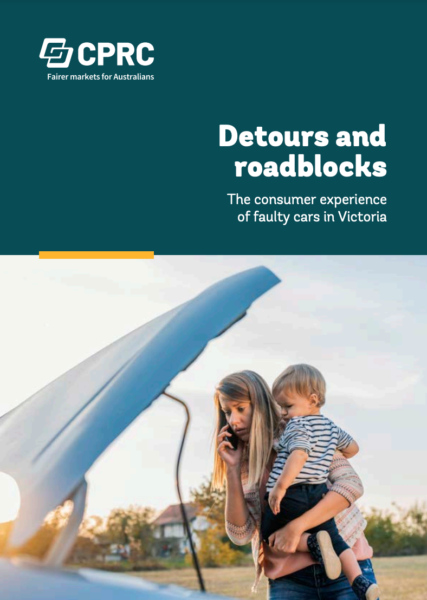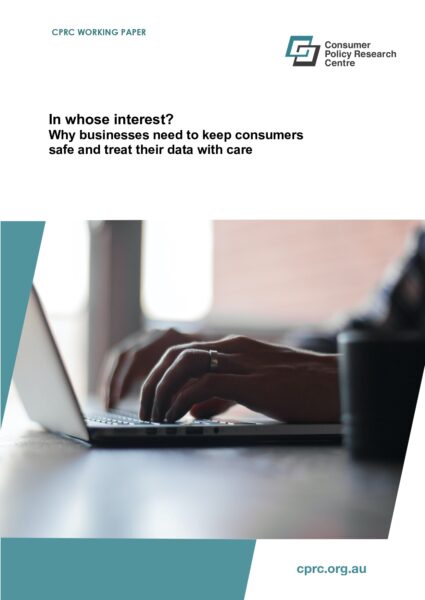March 29, 2023
This working paper explores consumer sentiment on privacy practices and protections. CPRC conducted a nationally representative survey of 1,000 Australians on their views on how personal information is collected, shared and used by businesses.
Today, most protections for consumers are based on notification and consent. Practically, this means that people are asked to accept long and unhelpful privacy policies, often as the precursor to accessing a product or service. It’s difficult, if not impossible, to really understand how a business will actually use your data. If you don’t like what a business plans to do with your data, you typically have two choices: accept it or don’t shop with that business. The take-itor-leave-it approach to privacy policies doesn’t give people real choice and doesn’t offer meaningful protection against harmful data practices.
Only 7 % feel companies give them real choices to protect their privacy online
84% agree that a company should be responsible for keeping data safe
Only 15% businesses are doing enough to protect privacy
agree that companies should always act in the best interest of the consumer when it uses data
79% agree that a company should only collect information about them that they need to provide a service or product.

are not comfortable with companies sharing or selling their personal information with other companies.

agree that a company should not sell people’s data under any circumstances

find it unfair that companies require you to supply more personal information than is necessary to deliver the product or service

expect businesses to protect people’s information from being used in ways that leaves them worse-off.


agree that it’s time-consuming to find actions to protect their privacy online
do not know where to seek help from if they have a problem with how a company collects, shares and uses their personal information
agree that a regulator should have enough staff and resources to investigate how companies collect, share and use personal information.
The survey results confirm that Australians need and deserve privacy protections that:

Chandni leads CPRC’s research stream on protecting consumers in a digital world. Her work to date includes exploring the consumer shift from the analogue towards the digital economy, the impact of deceptive and manipulative online design on Australian consumers and the key gaps that currently exist in Australia’s consumer protections.

October 31, 2023
Faulty cars are far too common and disrupt too many lives. This report delves deep into the repercussions of faulty cars on individuals' lives, examines the legal pathways available for those seeking remedies and explores the experience of First Nations people.

March 16, 2023
Australia’s privacy laws rely on notification and consent as the primary means of protecting consumers. The onus is on consumers to navigate complex privacy protections in a continuously complex digital economy. It is time to consider reforms that hold businesses accountable for how they collect, share and use consumer data. It is time to give regulators the power to pause and assess data practices that are causing or likely to cause consumer harm.